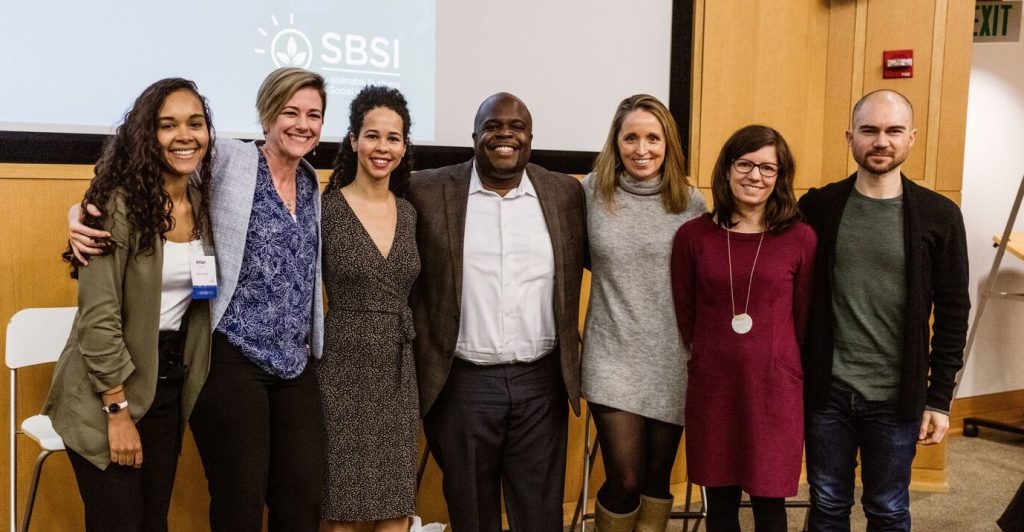February 2020

“Strap in your seat belts, it is going to be a busy decade for impact and all of you have a role to play,” said Freya Williams, CEO of Futerra North America, as she opened the fifteenth annual Sustainable Business and Social Impact 2020 (SBSI 2020) Conference at Duke University’s Fuqua School of Business on February 12. Although she didn’t know it, with this one sentence, she was framing the conference’s biggest theme: Leadership matters.
Across sectors, geographies and impact areas, one of the most prominent trends that we are seeing here at Fuqua’s CASE is the call for innovative leaders – real people – to step up and dig into the complex work of social impact. In People Matter: Evolving Talent to Drive Impact at Scale, we found that one of the biggest challenges that impact enterprises face as they scale is finding, retaining, developing and managing talented social impact leaders. Additionally, the need for these talented leaders to keep people at the center when working to solve the world’s biggest challenges is clear across our Six Impact Trends to Watch in 2020 and will be explored further in the upcoming season of our CASE in Point podcast. Whether by leading the shift from shareholder to stakeholder capitalism, working to protect vulnerable populations from unintended risks of data and technology or following the lead of marginalized communities, we need resilient impact leaders to solve these challenges using a human lens.
Throughout SBSI 2020, speakers came back to the theme that innovative leaders are one of the most critical elements in achieving impact. Here are just a few of their helpful insights:
- Karen Beadle, Senior Director of Partnerships and Engagement for Sustainable Manufacturing & Sourcing at Nike on how to grow your impact leadership skills:
“Get a different stakeholder perspective that is valuable outside the company – don’t be afraid to shift industries, it will help you see things in a variety of different ways.”
- Ali Hartman, Head of Global Citizenship/Director, ESG Strategy at KKR on the leadership needed in climate change:
“There has been more interest in aligning investments with slowing climate change in the last six months than there’s been in the last six years. We need to be realistic about infrastructure changes needed for a renewable energy-driven economy and we need leaders like you to help think of innovative ways to take us there.”
- Burnell Holland, Deputy Director of My Brother’s Keeper Alliance, Obama Foundation on the importance of collaborating with many groups of people to create systemic changes:
“If you are going to solve a problem as big as racism, you need to have people from every sector at the table.”
- Milena Pribic, Advisory Designer for IBM on why it is important for leaders to start with a human-centered approach:
“Tech for Good has to start with understanding human values, contexts and biases that are developing and using it.”
- Dan Heath, NY Times bestselling author and CASE Senior Fellow on why we need a new type of hero for “upstream” thinking, or working to solve problems before they happen:
“Ownership is about holding yourself accountable for a problem. In a lot of upstream work, the people solving the problem are not the ones causing it.”
- Jason Rahlan, Director of Social Impact and Philanthropy at Chobani on how to be an effective changemaker and lead in using business as a force for good:
- Be human first.
- Identify an issue
- Humbly accept your lack of knowledge – don’t be afraid to say you don’t know
- Engage subject matter experts and advocates
- Understand what the root problem is and don’t settle for quick, short-term wins
- Develop a true solution and strategy for change
- Help move the movement forward
While the need for leadership in innovation was one of the main overarching themes of this year’s SBSI, the speakers also had additional insightful advice concerning: 1) the power of capitalism to create change, 2) the slow integration of traditional business and social enterprise, 3) trends in impact investing, 4) using technology for good and 5) how to lead systems change work, among others. To learn more about this year’s conference and what attendees learned, check out our Twitter feed and search #SBSI2020.

